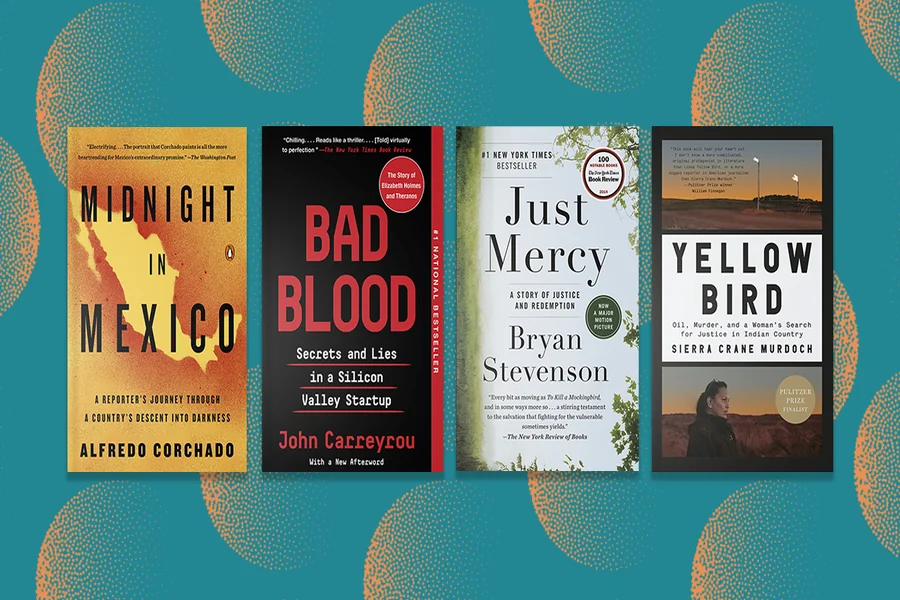True crime documentaries have become a dominant force in the entertainment world over the last decade, captivating millions of viewers and sparking widespread conversations around the globe. From high-profile cases like the murder of Nicole Brown Simpson to more obscure and chilling stories, these documentaries have an almost magnetic pull on audiences. The fascination with true crime shows no signs of slowing down, with streaming platforms and cable networks alike creating more and more content around this genre. But what is it about true crime documentaries that captivates viewers so intensely? In this article, we explore the psychology behind this obsession and why fans continue to be drawn to these real-life tales of crime and investigation.
1.The Thrill of the Unknown
One of the primary reasons that people are so drawn to true crime documentaries is the thrill of the unknown. Crime stories inherently involve a mystery, an element of uncertainty that keeps viewers on edge. Unlike scripted dramas or fiction, true crime documentaries are based on real events, which adds an extra layer of suspense. The knowledge that the events actually occurred—whether they involve murder, fraud, or disappearances—makes the stakes feel higher, creating a tension that fictional tales can’t match.
The Mystery and the Unsolved
True crime stories often revolve around unsolved mysteries or ambiguous conclusions. Whether it’s a cold case or a trial with an uncertain verdict, these cases leave viewers asking questions. The drive to understand the “why” and “how” behind the crime is an irresistible urge for many. People are fascinated by the idea that they can solve a puzzle by gathering pieces of information presented in the documentary. Viewers become amateur detectives, trying to figure out the truth before the documentary reveals it. This engagement with the mystery element taps into the human desire for problem-solving and the satisfaction of discovering the hidden details.
- A Look into the Human Psyche
True crime documentaries often provide an in-depth exploration of the psychology of criminals. For many, this insight into the minds of perpetrators is both disturbing and fascinating. How can a person commit such horrific acts? What drives someone to murder, kidnap, or engage in heinous behavior? These questions are not only part of the narrative but become the focus of much of the documentary’s exploration.
The Appeal of the Criminal Mind
Psychology plays a significant role in our fascination with true crime. Documentaries that delve into the backgrounds of criminals, analyzing their motives, personalities, and past experiences, allow viewers to understand what might drive someone to commit a crime. The genre explores complex themes such as sociopathy, psychopathy, and mental illness, making it a compelling watch for those intrigued by human behavior.
For example, the popularity of documentaries about notorious figures like Ted Bundy, John Wayne Gacy, and The Zodiac Killer can be traced to our curiosity about what makes these individuals tick. What was their upbringing like? What events in their lives pushed them toward criminality? These stories are often more than just tales of crime; they are windows into the darkest corners of the human psyche, which can be both chilling and riveting.
- The Addiction to Suspense and Drama
True crime documentaries are often structured like high-stakes dramas, with shocking twists, dramatic re-enactments, and revelations that keep viewers hooked. The tension builds throughout the episodes, with new evidence, interviews, and investigative findings slowly revealing pieces of the puzzle. This pacing mirrors that of a well-crafted thriller, with the same suspenseful highs and emotional lows.
Real-Life Drama
The compelling nature of real-life drama is another reason why true crime documentaries resonate with audiences. These stories often have larger-than-life stakes—whether it’s a murder trial, a government conspiracy, or a missing persons case. Viewers become invested in the outcome because it’s not just fictional, but based on real people and events. The fear, heartbreak, and anxiety that accompany real-world situations are often portrayed in a way that makes the audience feel connected to the victims and those involved.
Take Making a Murderer as an example. The documentary follows the case of Steven Avery, a man wrongfully convicted of a crime he didn’t commit, only to be accused of another crime years later. The rollercoaster of emotions, the twists in the legal process, and the shocking potential of a miscarriage of justice kept viewers on the edge of their seats for the entire series. The real-life aspect of the documentary added layers of emotional intensity that fiction often cannot match.
- The Rise of Social Media and Online Communities
The rise of social media has played a significant role in fueling the obsession with true crime documentaries. Platforms like Reddit, Twitter, and Facebook have become virtual hubs for fans to discuss theories, share new information, and connect with others who are equally fascinated by the cases. Online communities dedicated to true crime have exploded in recent years, where fans engage in deep dives into cases, conduct their own investigations, and even try to solve cold cases.
Crowdsourced Investigations
These online communities allow fans to become part of the investigation process. Fans of true crime documentaries often form groups where they share theories, discuss clues, and build upon each other’s research. This type of crowdsourced investigation has led to actual breakthroughs in certain cases. For example, internet sleuths on Reddit helped revive interest in the Golden State Killer case, which eventually led to the capture of the perpetrator in 2018, decades after the crimes were committed.
This sense of involvement gives fans a sense of empowerment, as they can contribute to solving real-world mysteries. The rise of podcasts like My Favorite Murder and Serial has further amplified this community-driven exploration of crime, allowing fans to engage with the content on a more interactive level. The conversations sparked by these documentaries become just as important as the shows themselves, creating a feedback loop that sustains interest and keeps people coming back for more.
- The Dark Fascination with Death and Tragedy
Humans have a morbid curiosity about death, violence, and tragedy, which explains why true crime is so compelling. While it’s a difficult subject, there is something inherently gripping about exploring the consequences of extreme actions. True crime documentaries allow audiences to confront death and violence in a safe and controlled environment, without the real-world risks.
Escaping Through Tragedy
For some, these documentaries offer a way to process or confront their own fears. Watching a true crime documentary provides a sense of distance from the traumatic events, yet allows viewers to engage with them in a controlled way. By exploring real-world tragedies, viewers are able to work through their own anxieties and reflect on the dark sides of human nature without experiencing it firsthand.
Additionally, watching these documentaries in groups or online communities can help viewers process the horror and tragedy in a supportive environment, sharing emotions and theories with others. For many, it’s the shared experience of watching these dark tales unfold that adds another layer to the appeal of true crime.
- The Sociological Appeal: Exploring the Justice System
Another draw of true crime documentaries is the opportunity to explore the justice system and its intricacies. Many true crime documentaries focus not just on the crime itself but also on how the case was handled by law enforcement, the courts, and the media. This allows viewers to critically examine the functioning of the legal system and question whether justice was truly served.
Injustice and Corruption
Many true crime documentaries highlight stories of wrongful convictions, police corruption, and the failings of the justice system. Documentaries like The Central Park Five and The Innocent Man bring attention to the flaws in the legal system and the impact of prejudice, bias, and systemic failures on innocent individuals. These documentaries not only entertain but also educate, urging viewers to consider the complexities of justice and morality.
The obsession with the workings of the legal system is partly because it reflects societal values and beliefs. The public’s need to understand justice and morality becomes intertwined with the entertainment of true crime narratives, creating a unique cultural phenomenon.
- The Rise of True Crime in Popular Culture
True crime documentaries have influenced a broad range of other media, including podcasts, books, and even movies. They have inspired true crime podcasts like “Serial”, “My Favorite Murder”, and “Criminal”, which have amassed millions of listeners. The genre has also led to numerous fictionalized accounts, with films and series inspired by real-life events, such as Mindhunter, Zodiac, and The People v. O.J. Simpson.
True Crime as Pop Culture
As more people consume true crime content in various forms, it has become embedded in popular culture. This has normalized the genre and made it accessible to a wider audience. Shows like The People v. O.J. Simpson or Making a Murderer are not only commercially successful but also provoke deep cultural conversations about the nature of justice, truth, and society’s obsession with crime.
Conclusion
True crime documentaries offer more than just tales of murder and mystery—they provide a way for viewers to engage with real-world events, explore human psychology, and reflect on the functioning of the justice system. From the thrill of the unknown to the psychological appeal of understanding criminals, these documentaries captivate audiences for reasons that go beyond simple entertainment. As the genre continues to grow in popularity, it’s clear that true crime documentaries have become a cultural staple that speaks to humanity’s fascination with the darker aspects of life. Whether it’s for the suspense, the drama, or the desire to solve a mystery, true crime documentaries are likely to remain a powerful force in the world of entertainment for years to come.



